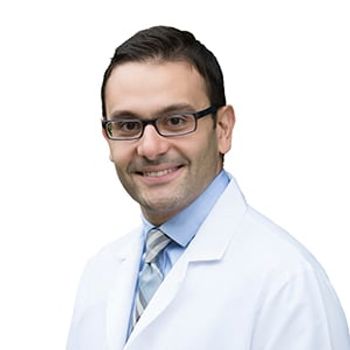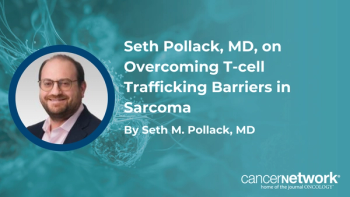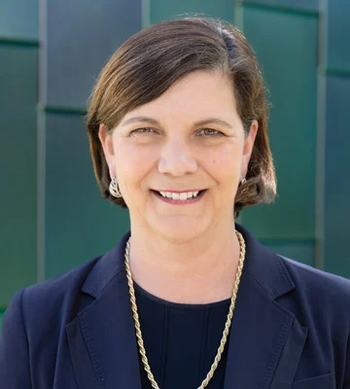
Oncology NEWS International
- Oncology NEWS International Vol 12 No 2
- Volume 12
- Issue 2
Two Experts Describe How They Assess/Manage Fatigue
BOSTON-Oncologists should screen cancer patients and survivors routinely for fatigue and attempt to treat those who complain of exhaustion that rest does not relieve, according to two speakers at the 14th international meeting of the Multinational Association for Supportive Care in Cancer (MASCC) and International Association for Oral Oncology.
BOSTONOncologists should screen cancer patients and survivors routinely for fatigue and attempt to treat those who complain of exhaustion that rest does not relieve, according to two speakers at the 14th international meeting of the Multinational Association for Supportive Care in Cancer (MASCC) and International Association for Oral Oncology.
Carmen P. Escalante, MD, director of the Fatigue Clinic at M.D. Anderson Cancer Center, urged a multidisciplinary approach to diagnosis and treatment. She said the 4-year-old clinic has recommended therapies ranging from exercise and self-hypnosis to small doses of the stimulants methylphenidate (Ritalin) and modafinil (Provigil) as well as other pharmacologic agents.
Many oncologists think they can’t treat fatigue, so they don’t try, she told ONI, but her clinic has treated more than 100 patients. "In a majority of cases, we can treat fatigue somewhat," she said. "Very rarely can we make all the fatigue go away. We can bring it down to moderate levels, and that’s very important to patients." Started in 1998, the clinic was the first and may be the only fatigue clinic in the country, according to Dr. Escalante.
Implementing Guidelines
Barbara F. Piper, DNSc, RN, associate professor, College of Nursing, University of Nebraska Medical Center, said a consensus is emerging that cancer-related fatigue is "a multicausal, multidimensional syndrome" with temporal, sensory, affective, behavioral, and cognitive dimensions. Nonetheless, she expressed concern that fatigue assessment is not being integrated into clinical practice.
The failure to develop and implement guidelines is a basic problem. "Even at the University of Nebraska, we do not have fatigue on our documentation forms," Dr. Piper said in a discussion of guidelines developed separately by the National Comprehensive Cancer Network (NCCN) and by the Classification of Diseases 10th Revision-Clinical Modification (ICD-10).
Both speakers called for extensive clinical testing of guidelines and treatments. Dr. Piper said the two fatigue guidelines are largely based on expert opinions, and neither endorses a specific fatigue scale by which physicians can measure the severity of symptoms.
Dr. Escalante complained of a lack of well-designed clinical trials of pharmacological agents, especially antidepressants, with fatigue as an endpoint. "If we can figure out physiologic causes, maybe we can be more successful in figuring out interventions," she added, outlining possible causes and noting that often more than one etiology is involved. The list includes anemia, hypothyroidism, electrolyte imbalances, sleep disorders, pain, emotional distress, and depression.
Among 123 patients seen at the M.D. Anderson Fatigue Clinic, Dr. Escalante reported that 54% were depressed, 48% had uncontrolled pain, and 43% had sleep disturbances. Education and counseling are extremely important, she said, emphasizing that many patients fear that fatigue is a sign that their cancer has recurred or become worse. "Reassure them that most times this is not the case," she advised.
Dr. Piper recommended that oncologists measure fatigue before cancer treatment starts and follow up repeatedlywith each cycle of chemotherapy or every week if the patient is having radiation therapy. Fatigue should be measured again after treatment ends "because it does last longer than we might anticipate," she said. Providers should try to determine how long patients have been fatigued, the impact on functioning, the physical sensations of fatigue, and changes in activity and sleep patterns.
Dr. Escalante also called for specific questions. "If you ask a patient, ‘Are you eating appropriately? Are you eating well?’ they always answer yes," she said. "If you ask about meals they ate, you may get a different picture."
Interventions
Exercise, usually walking, has been the most successful intervention, Dr. Escalante said. It was recommended to more than 40% of patients at the M.D. Anderson clinic, she said, adding that water exercise is a good alternative. Medications, usually antidepressants, stimulants, or pain remedies, were prescribed to 61%. The same proportion of patients received referrals: most often, for psychiatry, relaxation/self-hypnosis, and pain services.
When prescribing stimulants, such as methylphenidate off-label, oncologists should be cautious and monitor patients carefully for jitters, hypertension, and loss of sleep, Dr. Escalante said. She added that the clinic plans a study of methyl-phenidate, which is approved to treat attention-deficit disorder. For now, she recommends that it be given in small doses: 5 mg in the morning and 5 mg no later than noon. Similarly, she suggested starting modafinil, a drug used to treat narcolepsy, at 100 mg in the morning with a second dose taken at noon, rather than 200 mg initially.
Although some physicians are using low-dose corticosteroids, she said she does not use them routinely because "the risk may outweigh the benefit."
Articles in this issue
about 23 years ago
Some Activity for Gefitinib in Heavily Pretreated Breast Cancerabout 23 years ago
Brachytherapy Results Similar for Blacks, Whitesabout 23 years ago
Dose-Dense Chemo Ups Survival in Node+ Breast Cancerabout 23 years ago
MR Spectroscopy IDs Breast Cancers, Node Involvementabout 23 years ago
ODAC Wants More Data on Expanded Casodex Indicationabout 23 years ago
SuperGen Submits First NDA Module for Pancreatic Cancer Drugabout 23 years ago
Two Added to ONI’s Oncology Nursing Editorial Advisory Boardabout 23 years ago
Bortezomib Active in Relapsed/Refractory Myelomaabout 23 years ago
Telomerase Potential Cancer BiomarkerNewsletter
Stay up to date on recent advances in the multidisciplinary approach to cancer.





































